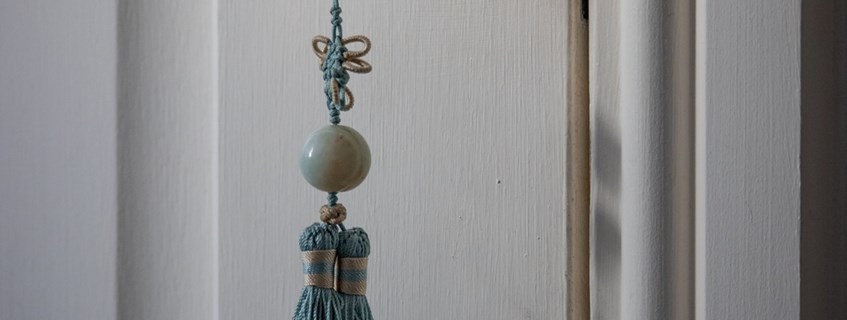
A Guide to Buying a Property in Portugal
Portugal has become a popular destination for foreign buyers in recent years. With its mild climate, stunning beaches, and friendly locals, it's no wonder that so many people are choosing to invest in property here. If you're thinking of buying a property in Portugal, then this guide is for you. We'll take you through the steps of purchasing a property, from finding the right one to completing the purchase, and we'll also touch on the costs involved. So, without further ado, let's get started.
Portugal Property Buying Process
Step 1: Appointing a tax representative and getting your tax identification number (NIF) - For non-residents
If you are non- resident in Portugal, before looking for a property, make sure you have your tax identification number (NIF) and have appointed a tax representative. Without these, you will not be able to make an official offer on a property.
The tax representatives are the middleman between you and the Portuguese Tax Department. Their role is to inform you about your tax obligations, laws and any deadlines.
Getting your NIF is rather straightforward, you can apply for it in-person at the closest finanças (Portuguese tax office).
Step 2: Finding the right property
The second step in any property purchase is choosing the right location. Portugal is not a large country but offers a wide variety of regions and districts, so it's important to take your time and do your research before making a decision. Once you've found the perfect location, the next step is to find a reputable real estate agent who can help you navigate the Portuguese property market and assist you with negotiating the price.
Step 3: Due Diligence
The due diligence process is a crucial next step after finding your dream property. Although the Elyseeum team will have verified all seller documents ahead of time, we always advise our clients to hire a lawyer/solicitor to carry out the due diligence and start drafting the promissory contract so they can be sure everything meets legal standards and guidelines.
The lawyer will review all the documents needed for the process including:
- Land Registry Certificate (Certidão Permanente or Certidão de Teor): this document contains details of the property ownership. I.e. all the information regarding the property, describing in a very detailed way, all its history in terms of constitution and all the registers recorded to date, the particularities of the property (construction area, plot area, etc.), its location, as well as the identity of the owner(s). It also mentions the possible existence of charges related to the property (garnishment, mortgages, registered usufructs or pending of registration), thus allowing a perfect knowledge of its legal situation. It is issued by the “Conservatória do Registo Predial” and is valid for 6 months. It must be updated for the sale.
- Tax Certificate (Caderneta Predial): this document proves the property has been registered for tax purposes. It is one of the most important documents because it identifies the property, legally, and gives all the appraisal data, for the calculations of the taxes and duties. All the characteristics of the property are also described, such as the areas (construction, plot, etc.), the typology, the assignment, the full address, the parish to which the property belongs, and even the identification of the owners. Issued by the Finances department, this document is valid for 12 months and must be updated.
- Habitation Licence (Licença de Utilização): this document is the license of the property usage/purpose (e.g. Habitation, Commercial). It is issued by the City Council (Câmara Municipal) of the municipality where the property is located. It states if the property was built according to approved plans and for habitation purposes. No property in Portugal can be sold without this license. It is absolutely mandatory except for properties built before 1951. In this case, a statement from the City Council, where it is mentioned the year of construction of the building, thus proving the exemption of the housing permit, will be required.
- Housing Technical Information Sheet (Ficha Técnica da Habitação): this is a document that is given by the property developer or builder when a new property is delivered. It provides all the technical details related to the construction of the property, such as the names of the suppliers, the materials used, the plans of the building(s), the common areas, the land bounderies, etc… The Housing Technical Data Sheet is only required for buildings that were built or underwent reconstruction, expansion or alteration after March 30, 2004.
- Property Plans (plantas do imóvel): The plans of the property can be obtained from the town hall of the county where the property is located. They allow to observe the distribution and measurements of the various divisions of the property, and to confirm that the property is currently in accordance with the original plan.
- Energy certificate (Certificado Energético): the Portuguese Law requires an energy performance certificate for any property for sale or for rent. The document shows the energy classification by letters from A+ to F and gives, among other coefficients, the values of CO2 emissions. The certificate is valid for 10 years. You will need it for signing the final sale deed at the notary, as well as for signing a rental contract with your tenant. There are, however, some exceptions to this requirement, as some properties are exempt from having an energy certificate. For more information on this subject, consult please the website: https://www.sce.pt/
Step 4: Drafting and Signing the Promissory Contract
Once the due diligence is completed and everything is legal, your lawyer will start drafting the Promissory Contract.
This contract includes the following information:
- the agreed price,
- what is included in the price,
- the date of the final deed, and
- other terms and conditions.
The promissory contract will be signed by you and the current owner/vendor.
Upon signature of the promissory contract the agreed deposit is paid (usually 10% of purchase price). As this contract is legally binding, the deposit is non-refundable. If either party changes their mind, they lose the deposit to the other (this means that if you change your mind you lose your deposit but if the vendor changes his or her mind you get your deposit back in double).
Step 5: The Escritura/Final Deed
After the Promissory Contract has been signed, it takes approximately 30 to 60 days for the Final Deed (Escritura) to be completed (in exceptional situations this could be shorter or longer).
This process involves the buyer, the vendor, their respective lawyers, the buyer's bank representative in case of a mortgage, the notary and the real estate agency. The final contract is in Portuguese. The parties can have the notary and lawyers translate it into English or other languages during the signing of documents.
The remaining balance of the agreed-upon purchase price is paid at this stage.
As soon as both parties have signed and the funds have been handed over, you can consider yourself to be the legal owner of your dream property in Portugal!
Portugal Property Buying Costs (as of the time of the writing)
When buying a property in Portugal it is important to be prepared to pay for other costs, in addition to the purchase price:
Agency Fees
The Agency Fees in Portugal are paid by the seller and not by the buyer, so none for you to pay.
Legal Fees
A lawyer will check all the documentation and legal side of the property you want to buy. For example, a lawyer carries out a title check and due diligence reports on the property. Using a lawyer, you know exactly what you are buying, without falling into any traps. If you wish, we can introduce you to reliable lawyers with whom we have a longstanding relationship, to help you throughout the buying process.
Notary Fees and Registration fees
It's essential to use a notary to legally validate a property purchase in Portugal. Typically you can expect to pay notary fees of €500 to €1000.
Stamp Duty (Imposto de Selo)
0.8% of purchase price, payable at the local tax office Finanças just before the final act of sale.
Property Transfer Tax (IMT)
The Property Transfer Tax (IMT) is a cost to be paid at the transfer of the property into your name. Different rates apply, depending on whether the property is a primary residence, a secondary residence, a holiday property, or a rental property.
Click here to email us in order to receive comprehensive buying guide to get detailed rates for each type of property.
ONGOING TAXES AFTER PURCHASE
It is important to consider the ongoing taxes you will have to pay after buying your property in Portugal.
Property Tax (IMI and AIMI)
The Property Tax (IMI) is the tax to be paid to the council, also known as council tax. It is a percentage of the rateable value of the property (VPT - valor patrimonial tributário), which is set by the tax office. Please note that this value is different from the market value or purchase price. The tax varies depending on the council.
The AIMI (Additional IMI) is an additional property tax applied to the entire rateable value of the property (VPT) on all residential properties and plots for construction valued above EUR 600,000 owned by a taxable person (thus excluding industrial or tourist properties). For couples (married or unmarried) who have opted for joint taxation, AIMI is applied to total asset values of above €1,200,000.
Click here to email us in order to receive comprehensive buying guide with detailed IMI and AIMI rates,
Rental Income Tax
When you own a property that you are renting out, you need to pay tax on the income.
For Portuguese residents, the rental income is added to the wage and together the income will be taxed as a total amount.
For non-residents this is different. A non-resident that rents out a property long term, pays tax on the income of the property, minus costs.
A non-resident that rents out a property short term (holiday let), pays tax on only a percentage of the income, meaning the majority of the income is tax free.
Buying property in Portugal is a complex process, but it can be a rewarding experience if you do your research and work with experienced professionals. By following these steps and being prepared for the associated costs, you can make your dream of owning property in Portugal a reality.
Note: This information is provided as a guideline to clients and, to the best of our knowledge is factually correct at the time of writing. Laws in Portugal are constantly changing - it is advisable to check your personal situation with your financial advisor.

